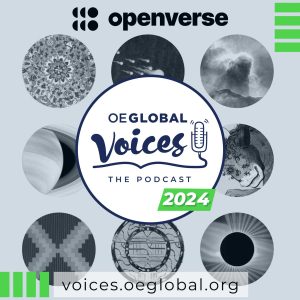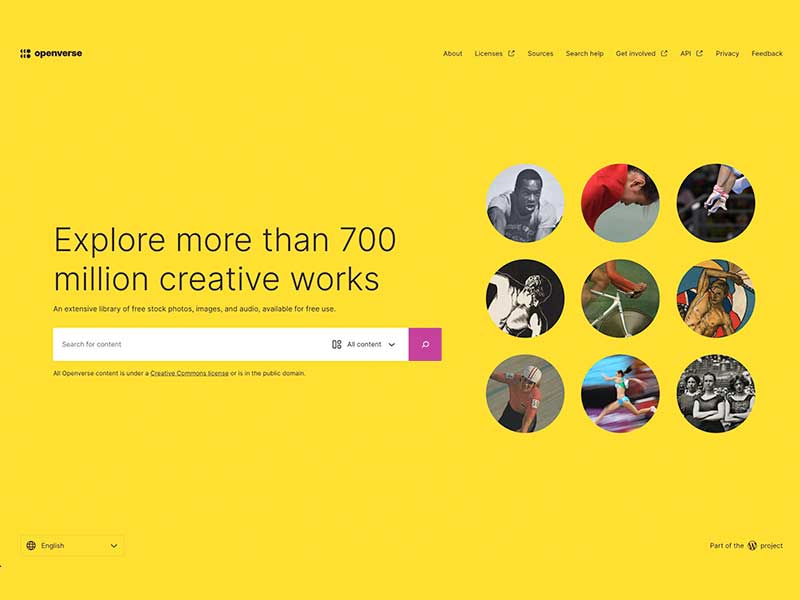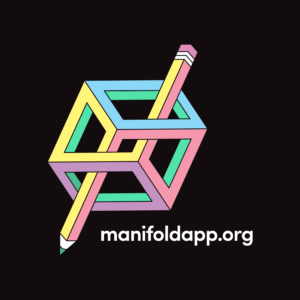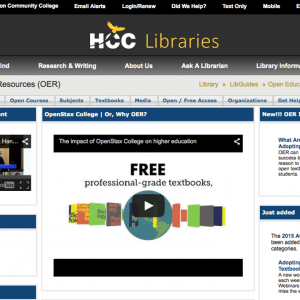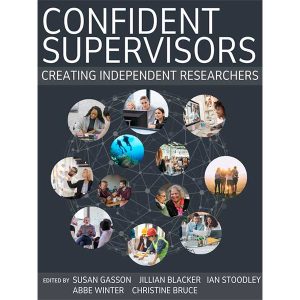Openverse is a powerful tool for finding and reusing Creative Commons licensed and public domain works, currently indexing over 700 million images and audio files. As the successor to the Creative Commons Search built in 2019, Openverse is now maintained and continually developed by WordPress, who adopted the project in 2021. Ongoing development is supported by the WordPress Foundation.
Openverse’s capability is based on integration of open APIs from public collections offered by museums, Flickr, Wikimedia Commons, and more sources, as well as the Common Crawl dataset. Beyond simple search, it aggregates results from multiple public repositories into a single catalog, and facilitates reuse through features like machine-generated tags and cut and paste attribution.
The easy attribution feature, one-click copy for a full formed Creative Commons attribution, might be reason enough for an award, but the features to filter searches by source collections and other parameters, image orientation, specific license, provides seekers of open content important affordances to find clearly licensed media they can reuse.
Openverse should be the primary recommended search for OER development, as the licensing is explicitly clear, not subject to third part owners writing their own license, being of great value for projects that mix content from multiple sources. More media types will be included in the future:
Currently Openverse only searches images and audio, with search for video provided through External Sources. But we plan to add additional media types such as open texts and 3D models, with the ultimate goal of providing access to the estimated 2.5 billion CC licensed and public domain works on the web.
What is worthy of note is that Openverse is built completely on and is made available as open source (all application code housed in Github) and includes contributions from over 200 developers. “All of our code is open source (Openverse frontend, Openverse API, Openverse Catalog) and we welcome community contribution.”
For its approach to openness in development and in what it offers, Openverse is very worthy of the Open Infrastructure award. I wish more educators made use of it!
Award Nominator
This is an exceptional search engine for the open education community. The one click attribution copy for images makes attribution very straight-forward and easy, even for novice users. The design is excellent, the results are returned fast.
Award Reviewer
Explore more about this awardee…
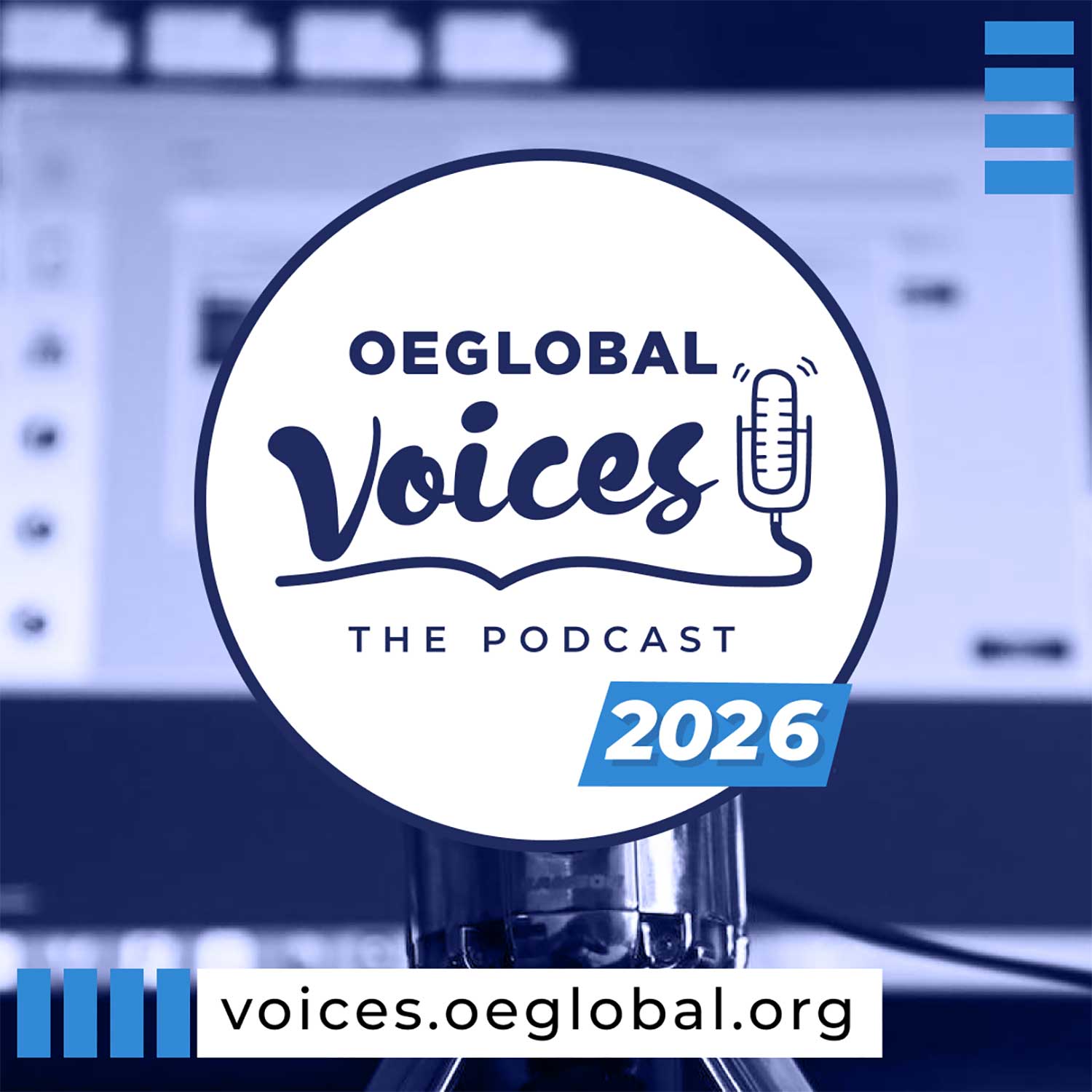
Podcasts from Open Education Global
In this episode we hear from two key members of the project team behind the open media search tool Openverse, winner of a 2023 Open Education Award for Excellence in the Open Infrastructure category. Recorded back in late July when we were between the announcements of the shortlist of finalists and the winners of the 2024 awards, we are overdue with sharing this conversation.
Openverse is an essential and recommended tool for open educations, a feature-packed search engine for finding and reusing openly licensed works, currently indexing over 800 million images and audio items from multiple institutional collections. As a successor to the original Creative Commons Search, Openverse is supported as a sponsorship of Automattic, the company that provides WordPress, and who adopted the project from Creative Commons in 2021. Ongoing development is enabled by the WordPress Foundation.
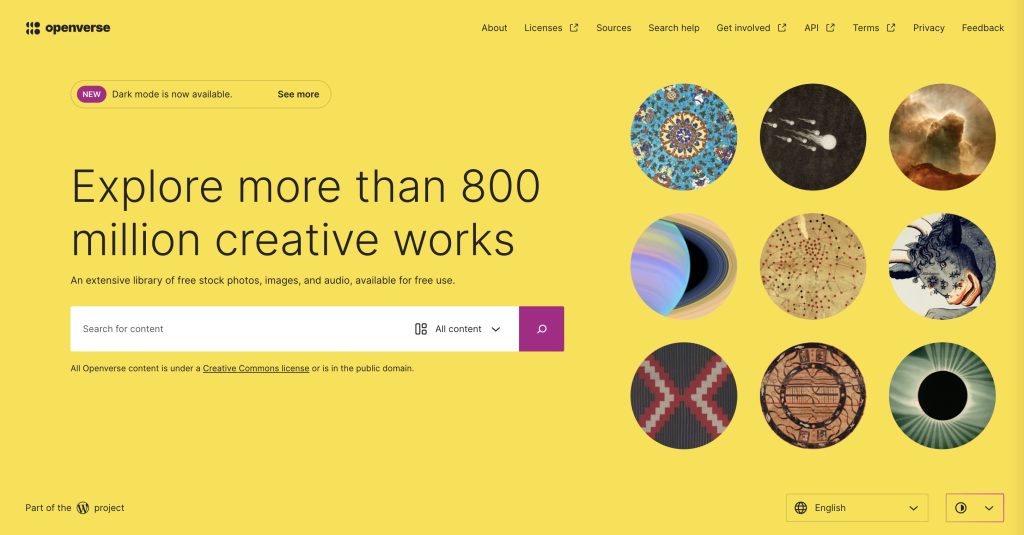
Representing this development team here is Zack Krida, Team Lead for the Openverse project and Madison Swain-Bowden, data engineer. We cover the the origins of Openverse, its relationship with the WordPress Foundation, technical insights into its functionalities, and its contributions to open education. We also spoke the implications of AI and machine learning, the user experience, the search features, and future goals for the platform.
We hope you enjoy this long overdue episode. If you have not done so already try Openverse for your media searches to experience the features and functionality, knowing the open licensed collections from which it sources draws can be credited using the one-click copy and paste for attribution.
at Descript.com
In This Episode
FYI: For the sake of experimentation and the spirit of transparency, this set of show notes alone was generated by the AI “Underlord” in the Descript editor we use to produce OEGlobal Voices.
OEGlobal Voices Episode 75 with 2023 OE Award Infrastructure Winner, Openverse
AI Underlord, generate a summary of this show including section chapters.
In this episode of OE Global Voices, host Alan Levine sits down with representatives from Openverse, Madison Swain-Bowden and Zack Krida. Openverse, which won the 2023 Open Education Award for Infrastructure, is a vital tool under the WordPress Foundation, providing a search engine for openly licensed media. Madison and Zack delve into the formation and evolution of the project, originally started by Creative Commons as CC Search, and its transition under the stewardship of the WordPress Foundation and Automattic.
The discussion highlights the unique functionalities and recent improvements in Openverse, such as sensitive content filtering, machine learning for better search relevance, and the significance of attribution, making the tool indispensable for educators and creators alike. The guests share their roles and personal journeys in tech and open source, reflecting on how their work with Openverse contributes to the broader mission of open education.
The episode also tackles the ethical considerations and potential uses of AI in managing and improving the search engine. Madison and Zack’s dedication to keeping Openverse user-focused and human-centric shines through as they share delightful anecdotes of user feedback and the joys of seeing their work make a difference in educational and creative communities.
Tune in to discover more about Openverse’s mission, the role of the WordPress Foundation and Automattic in supporting open-source projects, and the innovative ways Openverse is making openly licensed content more accessible and useful for everyone.
- Intro Music and Opening Quotes
- OE Global Voices Podcast Introduction
- Open Education Awards and Open Infrastructure Award
- Meet the Openverse Team: Madison and Zack
- What is Openverse?
- The Origin Story of Openverse
- Technical Insights: How Openverse Works
- The Role of WordPress Foundation and Automattic
- Team Roles and Backgrounds
- Openverse and Artificial Intelligence
- Recent Features and Improvements
- User Stories and Feedback
- Conclusion and Acknowledgements
(end of AI generated show notes)
Additional Links and Quotes for Episode 75
This is this is goes to the core of Openverse. It’s one of the things that I really love about it, is the one click attribution that we have. I think that was mentioned in the awards text that we got from OEG last year as a big thing to point out.
Madison Swain-Bowden
One thing I wanted to flag that I think is somewhat underappreciated with Openverse we are fully translated into about 19 different languages. So that’s the entire user interface, all the text on the site itself, um, and then in various stages of partial translation in 40 additional languages. Those are all those are all human generated translations by community contributors in the broader WordPress community, which is really remarkable.
Zack Krida
- Madison Swain-Bowden (WordPress profile)
- Zack Krida (WordPress profile)
- 2023 Open Education Award for Excellence, Open Infrastructure category (OEGlobal)
- Openverse (web site)
- Make Openverse (Development and project home, WordPress)
- Media Sources (Openverse.org)
- Open API (Openverse.org)
Our open licensed music for this episode is a track called Infrastucture by Anitek licensed under a Creative Commons Attribution-Noncommercial-Share Alike 3.0 License. Most of our podcast music is found at the Free Music Archive (see our full FMA playlist) but for this episode it seemed relevant locate the track using Openverse to search audio for the key phrase “infrastructure”.
This was another episode we are recording on the web in Squadcast. This is part of the Descript platform for AI enabled transcribing and editing audio in text– this has greatly enhanced our ability to produce our shows. We have been exploring some of the other AI features in Descript, but our posts remain human authored except where indicated otherwise.
